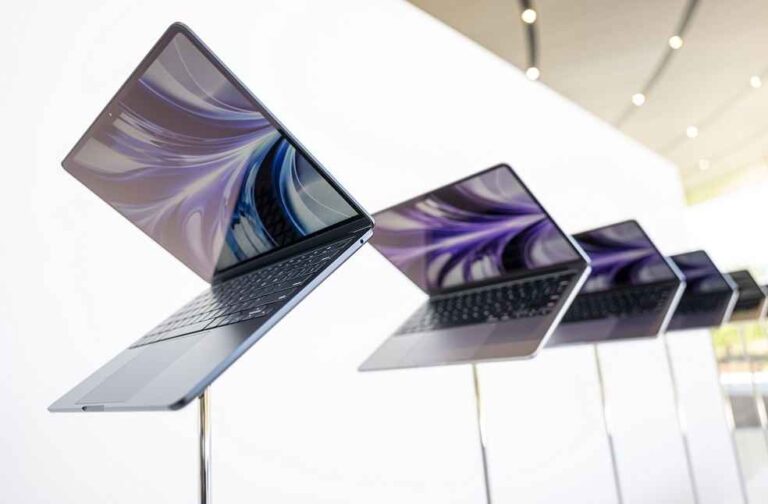The Directorate General of Foreign Trade (DGFT) of India has meticulously revised the import rules, aiming to stimulate the domestic manufacturing of laptops and computers. This insightful adjustment, clarified by the Global Trade Research Initiative (GTRI), is set to transform the national electronics manufacturing sector.
The reformed regulations, effective from November 1, aim to streamline industry operations until September 2024. With a keen focus on efficiency and authenticity, an upgraded online authorization system has been introduced. This innovative approach not only simplifies the import process but also ensures that products are sourced from reliable origins.
Local suppliers stand to benefit immensely from this strategic overhaul. As highlighted by GTRI’s Co-Founder, Ajay Srivastava, they are now presented with two viable procurement options: purchasing from companies situated in Special Economic Zones (SEZs) or opting for direct imports. Prominent global companies, such as Dell and HP, have already established significant manufacturing bases within India’s SEZs, signifying a strengthened international presence in India’s IT hardware manufacturing scene.

The new policy has been crafted with a discerning approach. It grants exemptions to laptops and tablets assembled in SEZs, promoting domestic assembly and reducing dependency on imports. In compliance with global agreements, the revamped rules delicately balance import control without imposing additional duties, presenting a nuanced strategy to nurture domestic enterprises.
Reflecting on global industry trends underscores the significance of this move. With China dominating over 80% of global laptop production and exports, the revised policy is a strategic step towards diversifying sources of IT hardware, reducing geopolitical risks, and fostering a more resilient global supply chain.

Ajay Srivastava emphasizes the importance of moving beyond basic assembly operations to create a sustainable manufacturing ecosystem in India. Encouraged by enhanced regulations and support schemes like the Production Linked Incentive (PLI), there is an optimistic outlook for increased domestic value addition in the manufacturing process.
Encapsulating strategic foresight, these regulatory evolutions herald an epoch characterized by manufacturing resilience and diminished import dependencies. India’s trajectory, thus recalibrated, resonates with the vitality and innovation requisite for the emergence of a formidable electronics manufacturing powerhouse.
IMEX SECTOR | India’s Tech Import Limits on U.S. Amid Trade Boom



